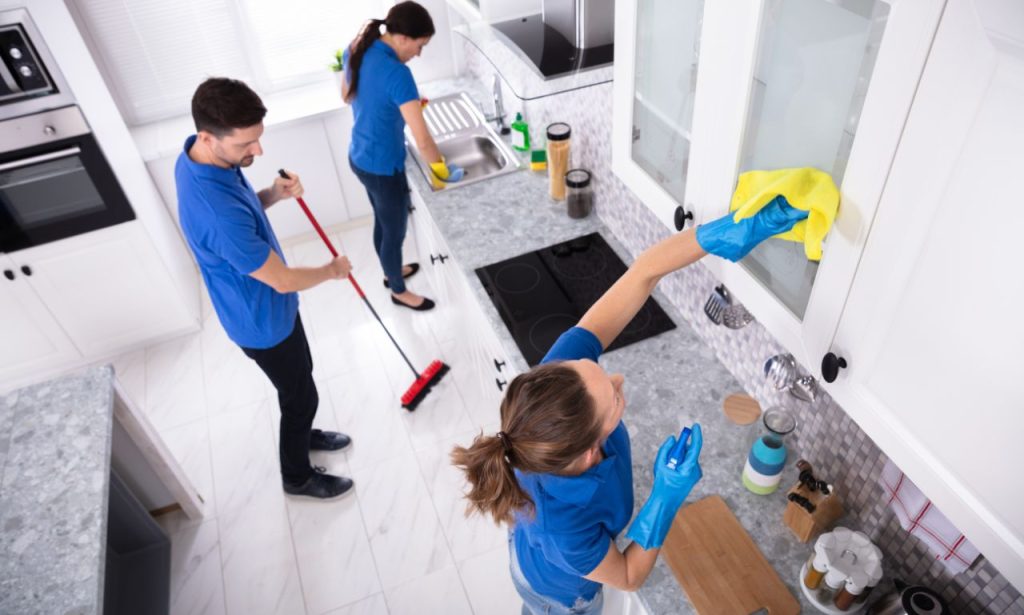Venturing into the cleaning business offers a wealth of opportunities, especially when you identify the right niche. Whether you are a new entrepreneur or a seasoned business owner, tapping into specialized cleaning business niches can lead to significant success and profitability. This guide will delve into various cleaning niches, highlighting essential tasks, benefits, and strategies to excel in each area. By the end, you’ll have a comprehensive understanding of how to thrive in this competitive industry.
Residential Cleaning Niche
Tasks Involved in Residential Cleaning
Residential cleaning involves a variety of tasks aimed at maintaining the cleanliness and hygiene of homes. As a residential cleaner, you will perform:
- Dusting and Vacuuming: Removing dust and debris from surfaces and floors.
- Mopping and Sweeping: Ensuring floors are spotless and free of dirt.
- Bathroom Cleaning: Sanitizing sinks, tubs, showers, and toilets.
- Kitchen Cleaning: Cleaning countertops, sinks, appliances, and cabinets.
- Window Washing: Cleaning windows and glass surfaces to remove streaks and smudges.
- Laundry Services: Washing, drying, and folding clothes and linens.
Each task requires attention to detail and a commitment to delivering high-quality service to ensure customer satisfaction.
Benefits of Focusing on Residential Cleaning

Focusing on residential cleaning offers several advantages:
- Steady Demand: Homes always need cleaning, ensuring a consistent demand for services.
- Flexibility: You can tailor your services to meet the specific needs of each client, offering everything from deep cleaning to regular maintenance.
- Customer Loyalty: Building strong relationships with clients can lead to repeat business and referrals.
- Scalability: Starting small allows you to expand your business gradually by adding more clients and possibly hiring employees as demand grows.
Commercial Cleaning Niche
Tasks Involved in Commercial Cleaning
Commercial cleaning encompasses maintaining the cleanliness of business and industrial spaces. Key tasks include:
- Office Cleaning: Dusting, vacuuming, and sanitizing workspaces.
- Restroom Sanitization: Regular cleaning and restocking of restrooms.
- Carpet and Floor Care: Deep cleaning carpets, mopping, and waxing floors.
- Window Cleaning: Keeping windows clean in high-rise buildings and storefronts.
- Trash Removal: Emptying trash bins and ensuring proper waste disposal.
- Disinfection Services: Using specialized equipment and products to disinfect surfaces and reduce the spread of germs.
Requirements for Commercial Cleaning
Commercial cleaning requires more stringent standards and regulations compared to residential cleaning. You will need:
- Training and Certification: Ensuring your team is trained in proper cleaning techniques and safety protocols.
- Specialized Equipment: Investing in commercial-grade cleaning equipment and supplies.
- Insurance and Bonding: Protecting your business and clients with appropriate insurance and bonding.
- Compliance with Regulations: Adhering to industry standards and local regulations for commercial cleaning.
Researching the Cleaning Industry in Your Area
Analyzing the Demand for Different Niches
To successfully enter the cleaning business, you need to understand the demand for various niches in your area. Research local demographics, economic conditions, and trends to identify which niches are most in demand. Key steps include:
- Market Surveys: Conduct surveys to gauge the interest and needs of potential clients.
- Competitor Analysis: Examine the services offered by competitors and identify gaps in the market.
- Industry Reports: Utilize reports and data from industry associations to understand broader market trends.
Assessing the Competition in Each Niche
Understanding your competition is crucial for positioning your business. Analyze the strengths and weaknesses of competing firms by:
- Service Comparison: Compare services offered, pricing, and client reviews.
- Market Positioning: Identify how competitors market themselves and their unique selling propositions.
- Customer Feedback: Gather insights from customer reviews and testimonials to understand what clients value most.
Defining Your Target Market
Identifying the Needs and Preferences of Potential Customers
To tailor your services effectively, you need to understand the specific needs and preferences of your target market. Key considerations include:
- Demographic Analysis: Identify the age, income level, and lifestyle of your potential clients.
- Service Preferences: Determine whether clients prefer regular maintenance, deep cleaning, or specialized services.
- Pain Points: Understand common issues or challenges clients face with their current cleaning services.
Tailoring Your Services and Pricing to Meet Customer Needs

Once you have identified your target market, customize your services and pricing to match their needs. Strategies include:
- Service Packages: Offer a variety of service packages to cater to different needs and budgets.
- Competitive Pricing: Ensure your pricing is competitive while still allowing for profitability.
- Added Value: Provide additional services or benefits that set your business apart from competitors.
Conclusion
Excelling in the cleaning business requires a strategic approach to identifying and serving your niche. By understanding the specific tasks and benefits of residential and commercial cleaning, researching your local market, and defining your target audience, you can build a successful and sustainable cleaning business.
ALSO READ: How to Get Diesel Smell Out of Car
FAQs
Starting a cleaning business involves several steps, including market research, defining your niche, obtaining necessary certifications, and investing in quality equipment and supplies. Focus on building a strong brand and delivering exceptional service to attract and retain clients.
Differentiate your business by offering unique services, exceptional customer service, and competitive pricing. Invest in marketing strategies that highlight your unique selling propositions and build a strong online presence through a professional website and active social media profiles.
Certifications for commercial cleaning may include training in cleaning techniques, safety protocols, and specific industry standards. Consider obtaining certifications from recognized organizations such as the Institute of Inspection, Cleaning, and Restoration Certification (IICRC) or the Cleaning Industry Management Standard (CIMS).
Insurance is crucial for protecting your business, employees, and clients. It covers potential liabilities, such as property damage or injuries, and provides peace of mind for both you and your clients. Ensure you have general liability insurance, workers’ compensation, and bonding as part of your coverage.
Key trends in the cleaning industry include the increasing demand for eco-friendly cleaning products, the use of advanced technology such as automated cleaning equipment, and the growing emphasis on disinfection and sanitation services. Staying informed about these trends can help you adapt and stay competitive.




